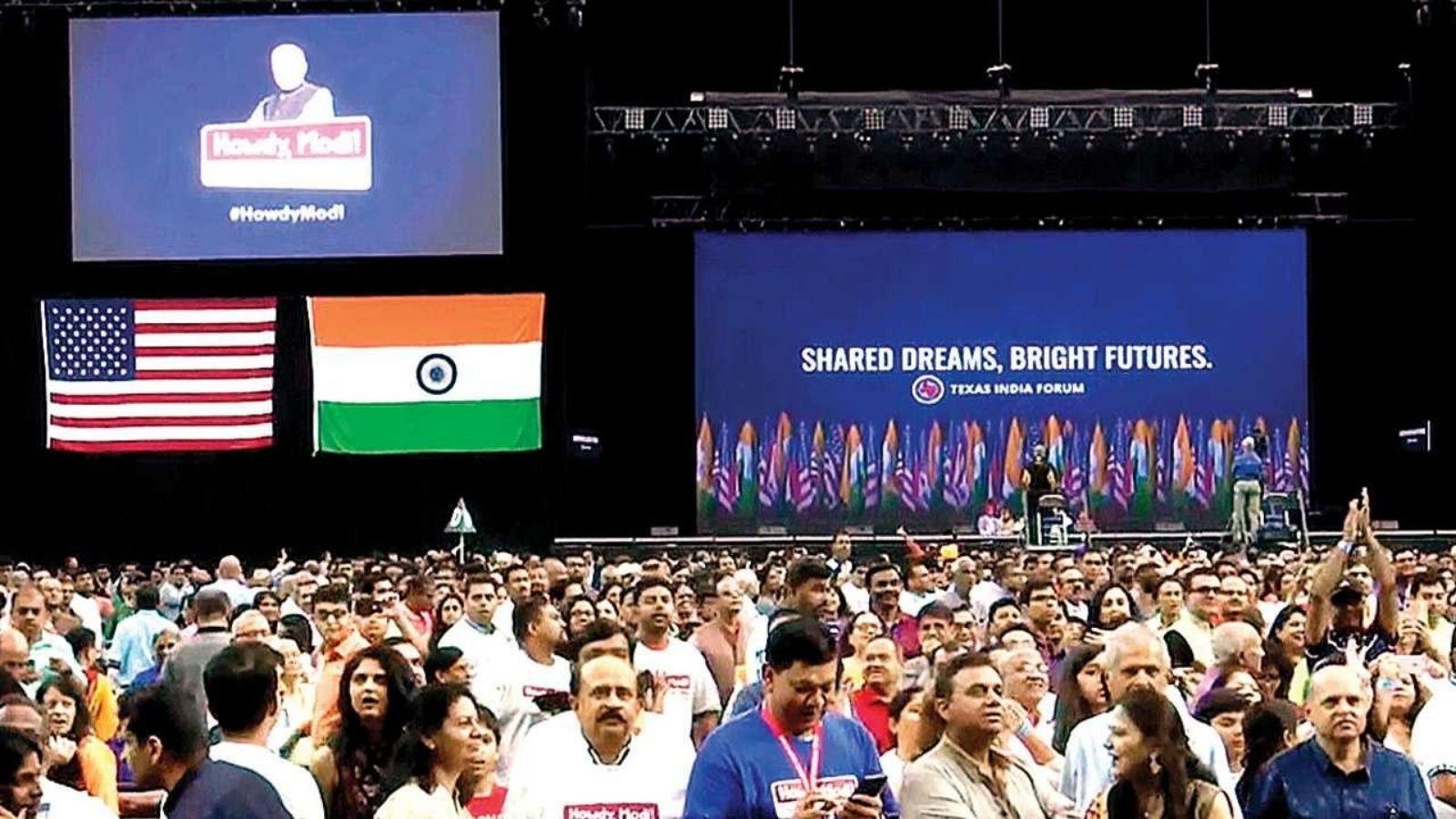By Shobhit Mathur, Co-Founder & Dean at Rashtram
Image Source: Vision India Foundation
This article was published in DNA India
September 22, 2019, is an inflection point in the long journey of the Indian diaspora. #HowdyModi is a first in many ways for its sheer scale and impact.
For the first time in recent history, a bipartisan array of lawmakers and the President of the United States of America were being hosted on their own soil by a foreign leader at a public event.
At 31 million, People of Indian Origin (PIO) constitute one of the – if not the largest – diasporas in the world. Due to internal fragmentation, it has remained largely only on paper, and never fulfilled its political potential.
Globally through his community events, Modi has been able to bring the diaspora together like never before. Through the power of their numbers and achievements, and his personal charisma, Modi has made the Indian diaspora a force to reckon with.
But political power is the first step. India should leverage the potential of the diaspora further and engage them in her growth story.
The Indian diaspora is globally respected as a law-abiding and professionally successful people. Through their grit and hard work, many of them have gone on to become the heads of state, CEOs of large corporations, award-winning scientists, etc. They contribute about 3% of India’s GDP through their remittances.
Other than inviting investments and remittances, India is yet to engage their expertise back home yet. We are underutilising the potential of our diaspora. The first step of uniting them and connecting them emotionally back to the Indian growth story has been achieved. It is time for the next step, to engage their functional expertise.
One institutional method of engaging the Indian diaspora would be to create an elected shadow Cabinet, which would support the Indian Cabinet ministers through their domain expertise.
This shadow Cabinet can be elected globally through an online voting process. There can be specific shadow Cabinet ministers based on functional expertise – science and technology, space, commerce and industry, tourism, new and renewable energy, electronics and information technology and shipping, among others.
Another deeper institutional engagement is to have the diaspora’s representation in the Indian Parliament itself. At the current numbers of 31 million PIOs, we could perhaps think of adding a few ‘diaspora seats’ in the Lok Sabha (with lesser powers than the domestic representatives).
Alternatively, India can constitute a third house in the Parliament with its own mandate, say a ‘pravasi sabha’. The sabha can be elected by PIOs in pre-defined constituencies globally via online voting. They can meet annually, rather than as per the current schedule of the Parliament. There are obvious concerns about undue foreign influence in sovereign legislation. These concerns can be addressed and avoided if India legislates the mandate of the pravasi parliamentarians carefully – giving them enough opportunity to support, but not powers that lead to unwanted lobbying of foreign interests.
Just like companies have different classes of shares that define their powers, pravasi sabha is not equivalent to other houses. The Indian diaspora can be trusted to perform a constructive role through its representation in the Parliament. This is not just an enabler, but a testimony of the Indian philosophy of vasudhaiva kutumbhakam.
Given the excitement of the Indian diaspora to contribute back to their home country, this would offer them an unprecedented opportunity at the highest level.
India would, in turn, be able to engage the best talent globally in its growth story. It is a win-win for all parties. The diaspora, which was once ignored and fragmented, can become a potent force for India.
Such a tricameral house will be a first in the world. India’s unique strength to conceive and implement this lies in the large population of its diaspora and a deep connection with their motherland that has been brought to the forefront under Prime Minister Modi, who has to his credit many firsts, whether domestic or foreign. This foreign policy innovation of engaging diaspora back with the motherland through the Parliament will perhaps be the most innovative of them all.
Original article was published in DNA India

